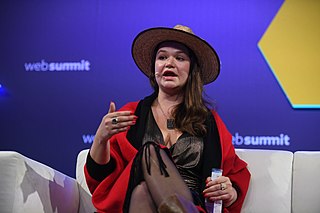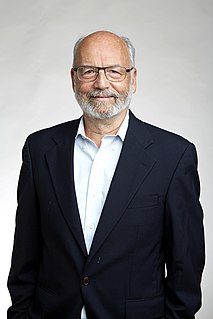A Quote by Bruce Schneier
Computer security can simply be protecting your equipment and files from disgruntled employees, spies, and anything that goes bump in the night, but there is much more. Computer security helps ensure that your computers, networks, and peripherals work as expected all the time, and that your data is safe in the event of hard disk crash or a power failure resulting from an electrical storm. Computer security also makes sure no damage is done to your data and that no one is able to read it unless you want them to.
Quote Topics
Able
Also
Anything
Bump
Computer
Computer Security
Computers
Crash
Damage
Damage Is Done
Data
Disgruntled
Disk
Done
Electrical
Employees
Ensure
Equipment
Event
Expected
Failure
Files
Goes
Hard
Helps
Makes
More
Much
Networks
Night
Power
Power Failure
Protecting
Read
Safe
Security
Simply
Spies
Storm
Sure
Them
Time
Unless
Want
Work
Your
Related Quotes
You have to imagine a world in which there's this abundance of data, with all of these connected devices generating tons and tons of data. And you're able to reason over the data with new computer science and make your product and service better. What does your business look like then? That's the question every CEO should be asking.
Defending against military-strength malware is a real challenge for the computer security industry. Furthermore, the security industry is not global. It is highly focused in just a handful of countries. The rest of the countries rely on foreign security labs to provide their everyday digital security for them.
Google, Amazon, Apple. Any number of cloud providers and computer service providers who can increasingly limit your access to your own information, control all your processing, take away your data if they want to, and observe everything you do; in a way, that does give them some leverage over your own life.
Today, your cell phone has more computer power than all of NASA back in 1969, when it placed two astronauts on the moon. Video games, which consume enormous amounts of computer power to simulate 3-D situations, use more computer power than mainframe computers of the previous decade. The Sony PlayStation of today, which costs $300, has the power of a military supercomputer of 1997, which cost millions of dollars.
It's simply unrealistic to depend on secrecy for security in computer software. You may be able to keep the exact workings of the program out of general circulation, but can you prevent the code from being reverse-engineered by serious opponents? Probably not. The secret to strong security: less reliance on secrets.
My background, I really am a computer hacker. I've studied computer science, I work in computer security. I'm not an actively a hacker, I'm an executive but I understand the mindset of changing a system to get the outcome that you want. It turns out to make the coffee, the problem is actually how the beans get turn into green coffee. That's where most of the problems happen.
Cloud computing means you are doing your computing on somebody else's computer. Looking ahead a little, I firmly believe cloud - previously called grid computing - will become very widespread. It's much cheaper than buying your own computing infrastructure, or maybe you don't have the power to do what you want on your own computer.



































